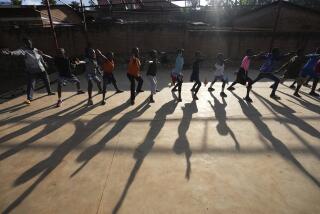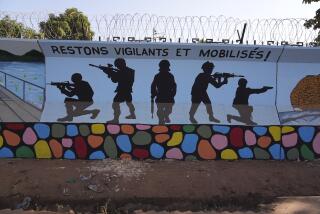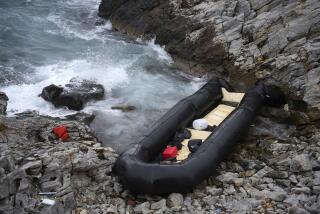U.N. says 100 more bodies found in Ivory Coast
A U.N. team in Ivory Coast has discovered about 100 additional bodies in the western part of the country, after forces loyal to the internationally recognized new president swept through last month in an effort to wrest control from the previous leader. The discovery brings the total of confirmed deaths in the region to 344.
Some of the dead had been burned alive. Others had been thrown down a well.
Western Ivory Coast has been one of the most violent areas in the battle for control between Laurent Gbagbo, the incumbent who has refused to cede power, and Alassane Ouattara, whose November election was recognized by the United Nations. Hundreds were killed after Ouattara’s forces moved in at the end of March. Ouattara has denied that his loyalists killed civilians and has promised an investigation.
Rupert Colville, a spokesman for the U.N. Office of the High Commissioner for Human Rights, said Friday in Geneva that the bodies had been found Thursday in three western towns: Duekoue, Blolequin and Guiglo.
The agency’s investigation suggests that the number killed in various attacks over several days at the end of last month may be lower than earlier reported. Two humanitarian agencies had put the figure at 800 to 1,000. Colville said more corpses may be discovered as the search continues.
Colville did not assign blame for the killings, saying caution was needed.
Both sides have accused the other of killing civilians, but Colville said it appeared there was a strong ethnic element to the attacks. Different groups appear to have been targeted in the attacks, raising the possibility of ethnic clashes in the area, a cocoa-producing region where traditional tension over land has been deepened by the political struggle.
“With these very ugly tit-for-tat killings in Duekoue and 100 more bodies found just yesterday, you’re talking about quite an escalation,” Colville said. “All the incidents appear at least partly ethnically motivated.”
Colville said the Duekoue killings appeared to have been in revenge for the killing of 100 people by pro-Gbagbo militias in March. The bloodletting underscores the difficulties Ouattara will face in reconciling the country once he takes power.
In Duekoue, 244 dead were found, most of them members of the Guerre ethnic group, which has traditionally supported Gbagbo.
In Blolequin, where about 40 have died, the Guerre were spared by the perpetrators, allegedly mercenaries from neighboring Liberia. (Human rights groups have accused Gbagbo of recruiting Liberian mercenaries.)
In Guiglo, a number of immigrants from neighboring West African countries were among the 60 dead.
Ouattara, who has been criticized because the killings occurred after his forces took control, called Thursday for restraint among his fighters and warned that any crimes would be punished.
Much of the tension in the west is between the Guerre and farmworkers, many of them either immigrants or sons of immigrants, divisions that reflect the national divide between Gbagbo and Ouattara.
Gbagbo’s supporters often played on ethnic tension during his term. Muslims from northern Ivory Coast and those of foreign descent living in Abidjan were subject to identity checks and police harassment, and their nationality questioned.
More to Read
Start your day right
Sign up for Essential California for news, features and recommendations from the L.A. Times and beyond in your inbox six days a week.
You may occasionally receive promotional content from the Los Angeles Times.






